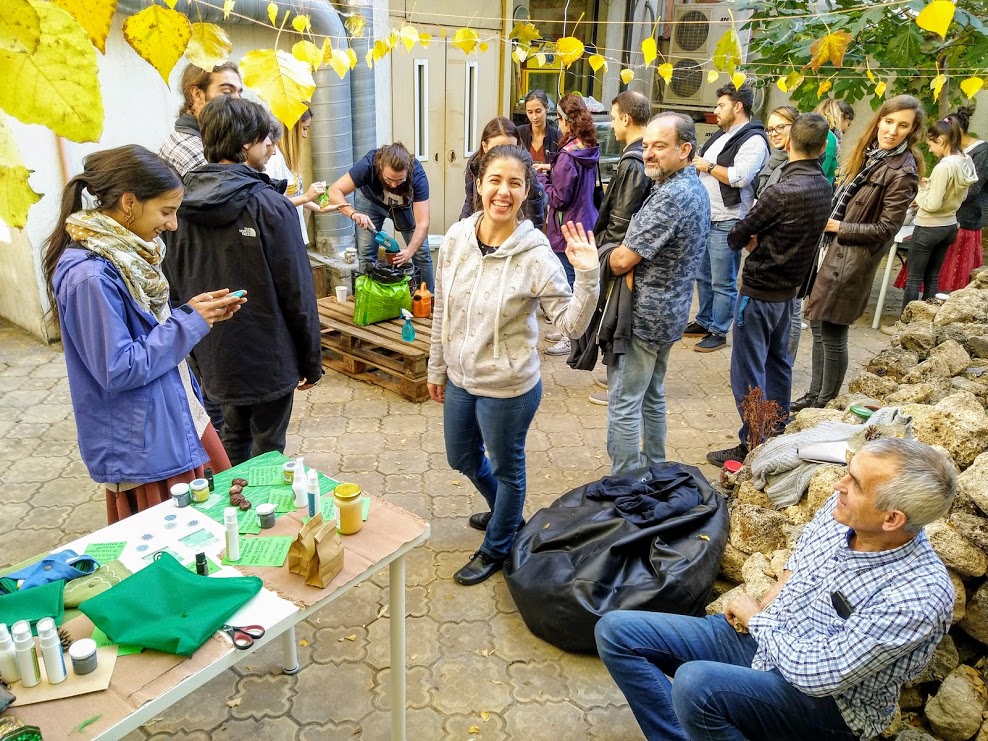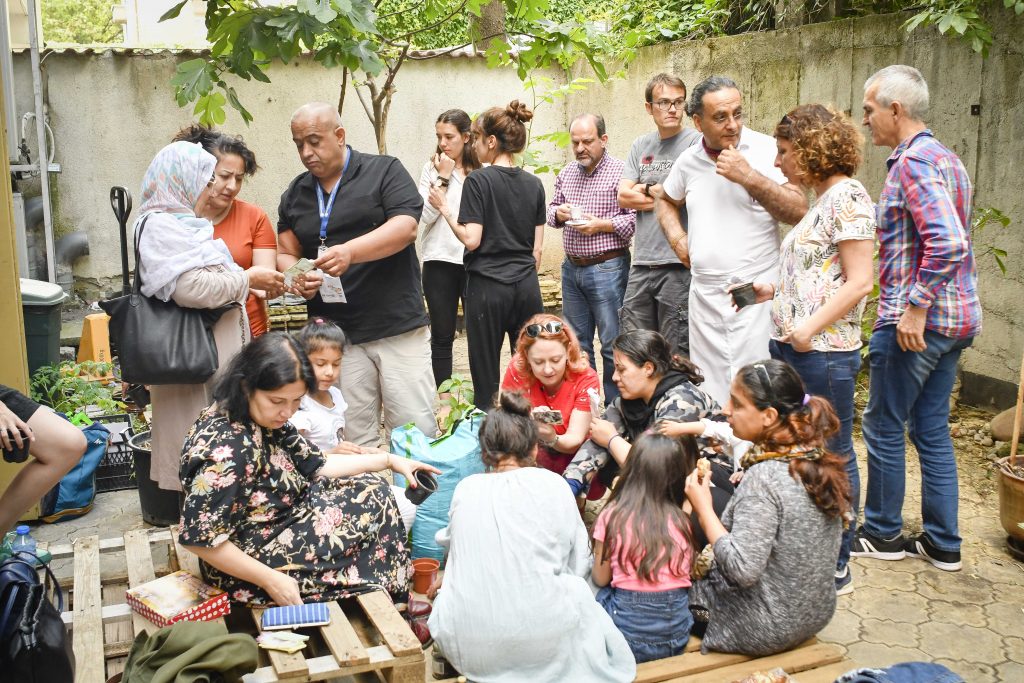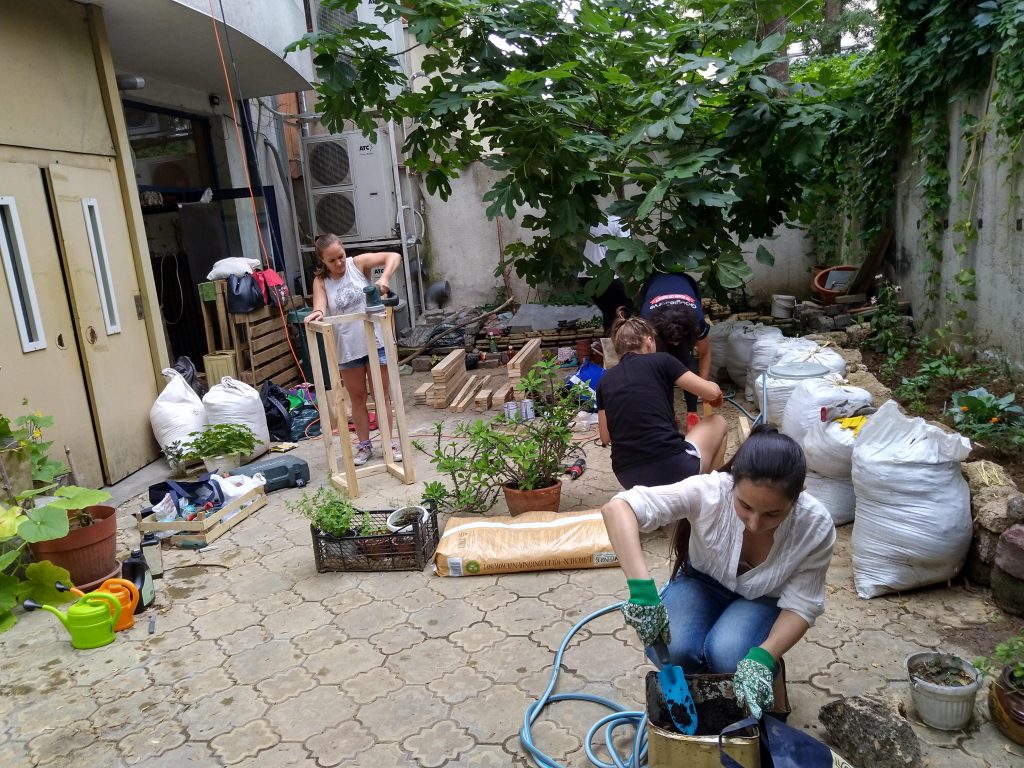
Name of the organization: Multi Kulti Collective
Website: multikulti.bg
Brief description of the organization
Multi Kulti Collective (MKC) is а leading Bulgarian NGOs working on migrant and refugee integration, community development and human rights since 2011. It operates both on grass-root and policy level to achieve a bigger impact and social change both nationally and in Europe. It also works as a social enterprise that has been empowering migrants since 2013. MKC is based in Sofia but in 2015 it grew to a social franchise in the 8 biggest Bulgarian cities. It has a successful track record in big national media campaigns, awareness-raising activities, using arts and culture for social change, innovative training, solid research, comprehensive monitoring of national integration policies, policy analysis, strategic advocacy. MKC’s projects have been featured as social innovations and best practices on national and EU level.
Problem addressed by the good practice
The project addresses several issues that Multi Kulti Collective has been observing from its grass root work with the target groups for years:
(1) Insufficient opportunities for bilateral social integration between Bulgarians and migrants (EU citizens, third-country nationals, including refugees and asylum seekers) in Sofia which can lead to isolation and encapsulation of many migrant communities
(2) High levels of hate speech against migrants, refugees and ethnic minorities
(3) Insufficient connection with the land and “growing new roots” for migrants who are used to working in the garden
(4) Insufficient participation of migrants in the creation and management of urban spaces
(5) An Insufficient number of community innovative green urban spaces in Sofia, which offer holistic solutions to problems of sustainable development – reduction and utilization of garbage and its transformation into compost, creation of urban gardens for growing vegetables and spices, collection and utilization of rainwater, air purification, etc.
(6) Insufficient information about ‘good practices’ and ‘showcases’ for steps that citizens can take in an urban environment to reduce their negative environmental footprint
(7) General public’s growing desire for clearer, more visible and effective policies for sustainable development in Sofia
Target groups
The project targeted:
- Migrants – EU citizens, third-country nationals, including refugees and asylum seekers
- Bulgarians, including Ethnic minorities, people with mental disabilities, etc.
The project was open for all age groups. The participants were mainly between 25 and 40 years old.
Summary of the good practice
Multi Kulti Garden is an open and democratic meeting place for Bulgarians and foreigners, which supports the two-way integration process through shared cultivation of edible and decorative plants from all over the world, organizing community and cultural events and exchanges. The garden empowers migrants, refugees and the local community by including them in a project to co-create a multicultural city garden where they will have their ideas, views, as well as spices, herbs, vegetables from their countries of origin.
The initial stage of the project was realized between March – October 2019 with the following activities:
- Outreach activities to attract Bulgarian and migrant participants – more than 30,000 Bulgarians and 10,000 migrants
- Realizing 6 community events for co-creating the garden – idea development, expectations, suggestions, common action plan, cleaning the space, compost workshop, planting, organizing the space, creating a vertical garden, etc. – more than 120 participants
- Creating online information materials for promoting good practices in the field of urban gardening and sustainable urban development – reaching more than 10,000 people
- Documenting the process – more than 10 social media posts
- Realizing meetings with other stakeholders who are interested to create urban gardens for other vulnerable groups – more than 3 meetings
- Realizing the New Roots Festival which celebrates diversity, fertility, social integration, sustainable urban development through a full day of various lectures, workshops, music, culinary delights and drinks – more than 80 participants from Bulgaria, Belgium, Iran, Afghanistan, Italy, France, Lebanon, Brazil, Japan, etc.
The idea for the garden was born after a one-year collaboration with the CasciNet association in Milan on a TANDEM Europe project “New Roots: Migrants meet Communities through culture, agriculture and food”, in which the partners organized a multicultural festival in Milan in October 2018. Inspired by its success, Multi Kulti Collective wanted to create such a multicultural garden in Sofia as well as the New Roots Festival.
The project involved various stakeholders such as:
- NGOs who work on the integration of vulnerable groups such as migrants, refugees, ethnic minorities, people with disabilities
- Sustainable urban development NGOs and collectives;
- Migrant food businesses
- Socially responsible companies
- Sofia municipality
The project was co-financed by the Social Innovation programme of the Sofia Municipality. Some socially responsible companies supported it too. The team tried to upcycle as many materials as possible. The terrain was provided for free by a migrant – a Lebanese baker who had a bakery there. The project relied mainly on volunteers – Bulgarians and migrants.
Evaluation
In 2019, the Multi Kulti Garden project received the national award Volunteer Initiative of the Year, given by the President of Bulgaria, which attests for its high quality.
Recommendations
The initiative was inspired by similar activities in Italy, which shows the opportunity for replication in other cities and regions, which are exploring new ways for building multicultural communities. To become a successful initiative for the social inclusion of migrants and refugees, the elements of co-creation and exchange of ideas and opinions should be stimulated.
Resources
Information about the Multi Kulti Garden can be found on the Multi Kulti Collective website and in a special Facebook group dedicated to the garden.


